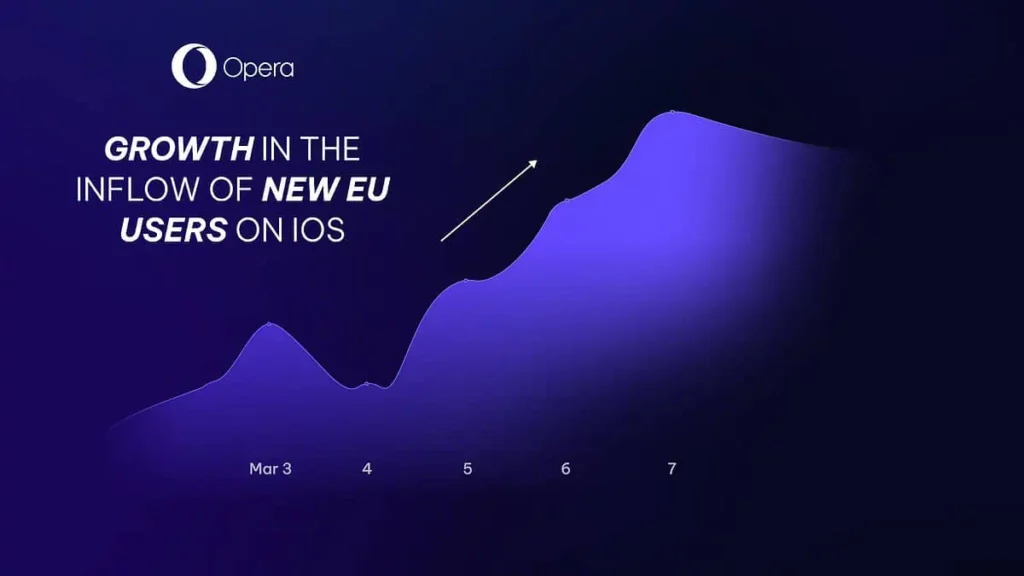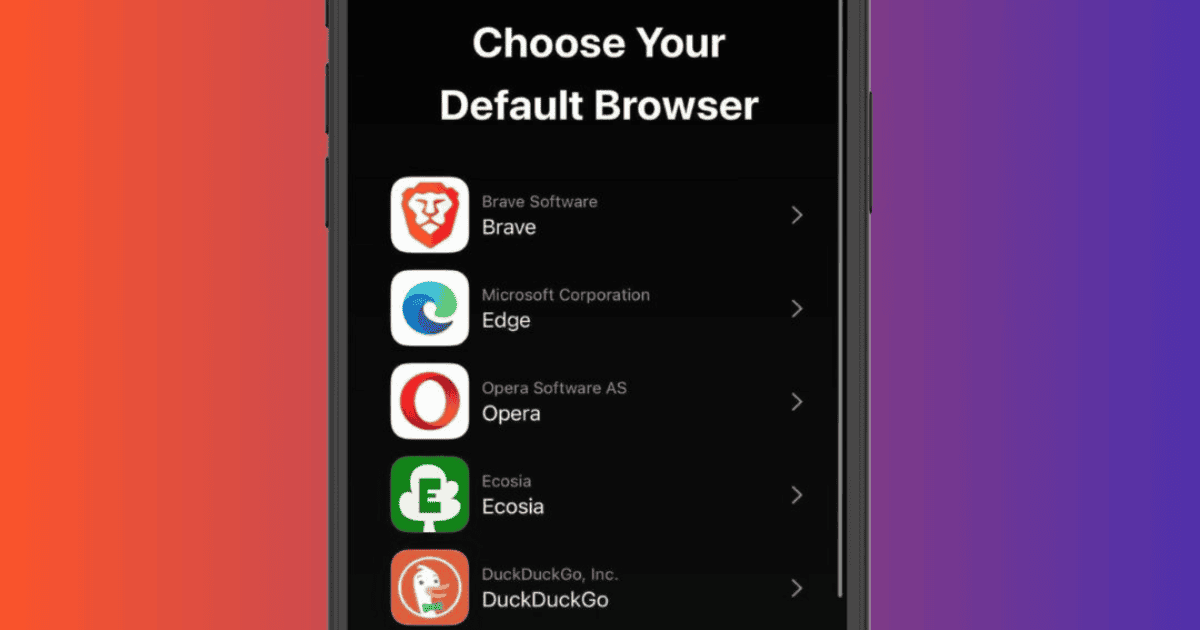Opera, the Norwegian browser developer, announced an increase in new users for its Opera for iOS product across Europe. This growth came after the implementation of the Digital Markets Act (DMA) in the European Union earlier this year.
The DMA, which came into effect on March 7th, 2024, exists to promote fair competition in the digital market by placing restrictions on large gatekeeper platforms. One main aspect of the DMA is the requirement for these platforms to offer users a choice of default web browsers, breaking the dominance of pre-installed options.
Opera reports a 63% growth in monthly new users for iOS across Europe from February to March 2024. Notably, France saw the most growth, with a 146% increase, followed by Germany (57%), Spain (50%), Poland (45%), and Italy (20%).
There’s also been a rise in users setting Opera for iOS as their default browser. Organic Opera users choosing Opera as their default increased by 39% across Europe between March 3rd and April 4th. This clearly shows that the DMA’s browser choice screen has been effective in allowing users to explore alternatives beyond the pre-installed option.
This growth is still less compared to the growth Opera had in the first 2 weeks after the implementation of DMA; it was a 164% rise. Now that’s a huge number.

As a challenger browser, Opera has always had to work hard to stand out in an uneven marketplace. Now that the DMA regulation is working to even the playing field, we’re excited to see that it has become easier for users to express their browser choice and for that choice to be respected.
said Jørgen Arnsen, EVP Mobile at Opera
Overall, Opera’s recent user growth figures suggest that the DMA’s browser choice screen could promote the discovery of alternative browsers, hence increasing the competition.
More here.
